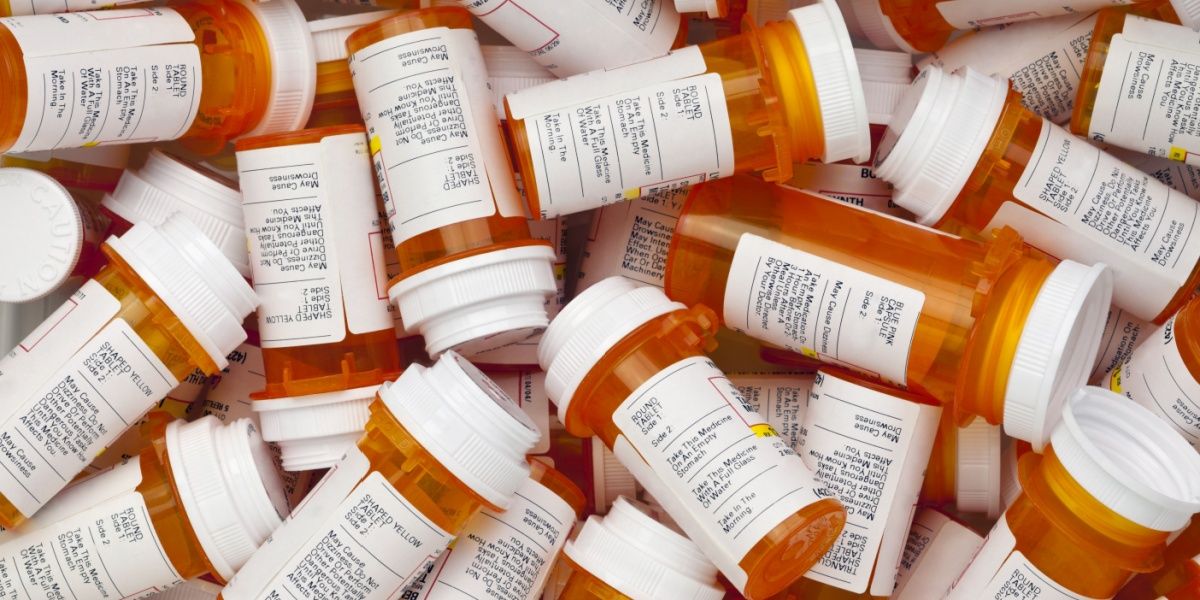Primidone is a medication used to treat epilepsy and essential tremors. Physicians typically start by prescribing a low dose, gradually increasing it to achieve optimal symptom control while minimizing side effects.
This article covers how to safely take primidone and key side effects to be aware of.
- Common side effects of primidone usage include shakiness, unsteadiness, drowsiness, dizziness, headache, apathy, nausea, and eye movement disorders.
- Rare but potentially severe adverse effects include allergic reactions, severe sedation, suicidal thoughts, difficulty urinating, and rare blood and bone disorders.
- There is a low risk of dependence and addiction when primidone is taken as prescribed. However, you should not suddenly stop taking primidone as this may cause potentially life-threatening withdrawal effects.
.jpg?v=1754301104)
Common and uncommon side effects of primidone
As with any medication, primidone usage can result in a range of unwanted side effects. Contact your doctor if you experience any of the following side effects when taking primidone.
Common side effects
Serious and rare side effects
Rare side effects occur in fewer than 1 in 1,000 people. However, it’s important to be vigilant for these potentially serious adverse effects. Seek urgent medical attention if you experience any of the following: [1][2][3]
- Severe allergic reaction (lip and face swelling, chest tightening, and difficulty breathing)
- Sedation that impacts your ability to breathe or stay awake
- Suicidal thoughts
- Sores, ulcers, unusual bleeding, or bruising
- High fever (with or without chills and a sore throat)
- Painful or difficult urination
- Lower back or flank pain
Rarely, some people who take primidone may experience folate deficiency or a severe drop in white blood cell or platelet count. For this reason, people who take primidone should have a blood test every 6 months. [1]
Long-term risks: Dependence and bone health
Primidone is a barbiturate-type medication. This group of medicines is associated with a risk of rare bone and connective tissue disorders with long-term use. In particular, people who take primidone for several years may have reduced bone mineral density (osteoporosis), putting them at risk of bone fractures. [4]
There is no evidence to suggest that primidone poses a significant risk of dependence when taken as prescribed for the treatment of epilepsy or essential tremor. However, dependence and addiction can occur if misused or taken at higher doses than recommended. Speak to your healthcare provider if you are concerned about your primidone usage. [5]
Drug interactions and precautions
Primidone should not be taken with any of the following medications: [1]
- Atazanavir
- Boceprevir
- Cobicistat
- Darunavir
- Delamanid
- Elvitegravir
- Maraviroc
- Mavacamten
- Nirmatrelvir
- Paritaprevir
- Ranolazine
- Rilpivirine
- Ritonavir
- Rivaroxaban
- Telaprevir
- Voriconazole
Several other medications can interact with primidone, necessitating dose adjustments or close monitoring. Ensure your prescribing physician is aware of any changes to the prescribed, over-the-counter, or herbal medication that you take. [1]
Your healthcare provider may need to adjust the dose of primidone or prescribe an alternative medication if you have impaired liver or kidney function, are pregnant or breastfeeding, or are under the age of 18. [1]
Primidone overdose
If you take more primidone than prescribed, you may experience symptoms such as: [1]
- Sedation
- Slowed breathing
- Low blood pressure
- Loss of consciousness
- Coma and death
You must seek emergency medical attention if you suspect primidone overdose. You will need to be closely monitored in the hospital and may require intensive care support. [1]
Monitoring and management tips
Primidone is considered a safe medication when taken as prescribed. You will need to have a blood test every 6 months to monitor for any adverse effects, especially any rare blood or bone disorders. [1]
If you are taking primidone, these medication management tips can help you to remain safe throughout your treatment:
- Report any side effects (seeking urgent attention for any serious adverse effects).
- Update your healthcare provider about any changes in your medication or health status.
- Use mediation organizers (such as apps or sorting boxes) to avoid accidental overdose.
- Keep medicines out of the reach of children and pets.
- Retain a copy of your after-visit summary.
- Read the patient information leaflet provided with the medication.
Tapering and withdrawal
You must not suddenly stop taking primidone. If you wish to stop taking primidone, you must speak to your physician, who will guide you through how to reduce your dose slowly to avoid experiencing withdrawal effects. [1]
Withdrawal from barbiturate-type medications can cause: [6]
- Muscle weakness
- Low blood pressure
- Nausea
- Sleeplessness
- Seizures
- Fever
- Psychotic reactions (including delirium or schizophrenic symptoms)
- Coma and death (in severe cases)
If you experience symptoms of primidone withdrawal, seek urgent medical attention.




-tablets-(1)-guide-detail.jpg?v=1722503547)